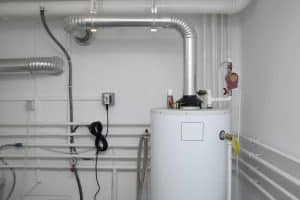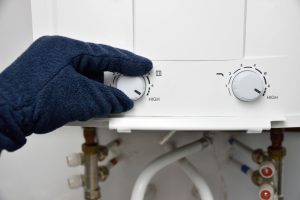When it comes to the comfort and convenience of our homes, few things are as essential as a reliable water heater. We rely on hot water for cooking, cleaning, and bathing, and a malfunctioning water heater can disrupt our daily routines. If you’re experiencing issues with your current water heater, you might be wondering whether it’s time to replace it or if a repair will suffice. In this article, we will discuss the signs that indicate you need a new water heater and help you make an informed decision.
1. Age of Your Water Heater
One of the primary factors to consider when deciding between replacing or repairing your water heater is its age. On average, a water heater has a lifespan of about 8 to 12 years. If your unit is nearing or has exceeded this age range, it’s more likely to encounter problems. In such cases, it’s often more cost-effective and practical to invest in a new water heater rather than repeatedly repairing an aging one.
2. Consistent Lack of Hot Water
Are you noticing a consistent lack of hot water in your home? If so, it could be a sign that your water heater is failing. Over time, sediment can accumulate in the tank, reducing its efficiency and heating capacity. Additionally, a malfunctioning heating element or a faulty thermostat can also cause inadequate hot water supply. If you’re constantly running out of hot water or if it takes an unusually long time to heat up, it’s a strong indication that a replacement might be necessary.
3. Rusty or Discolored Water
When you turn on your hot water tap, do you notice rusty or discolored water flowing out? This could be a clear sign that your water heater is deteriorating from the inside. Rusty water indicates corrosion within the tank, which not only affects water quality but also puts your water heater at risk of leaks and further damage. If you consistently experience rusty or discolored water, it’s a definite indication that it’s time to consider a new water heater.
4. Leakage or Water Damage
Visible leakage or water damage around your water heater is a red flag that should not be ignored. Leaks can occur due to various reasons, including cracks in the tank or fittings, loose connections, or a deteriorated pressure relief valve. Even minor leaks can quickly escalate into major issues, leading to water damage and potential flooding. If you notice any signs of leakage or water damage, it’s crucial to have your water heater inspected by a professional and consider a replacement if necessary.
5. Strange Noises
Unusual noises coming from your water heater are often an indication that something is amiss. Banging, popping, or rumbling sounds can be caused by the buildup of sediment in the tank. As sediment settles at the bottom of the tank, it can harden and create a barrier between the heating element and the water, leading to overheating and the production of these noises. If you frequently hear such sounds, it’s advisable to have your water heater assessed and potentially replaced.
6. Increased Energy Bills
If you’ve noticed a sudden spike in your energy bills without any significant changes in your household’s water consumption, your water heater could be to blame. As water heaters age, they become less efficient, requiring more energy to heat the same amount of water. This increased energy consumption translates into higher utility bills. If you’re experiencing an unexplained rise in your energy costs, replacing your water heater with a newer, energy-efficient model can help you save money in the long run.
7. Frequent Repairs
Have you found yourself frequently calling a technician to repair your water heater? Constant breakdowns and the need for repairs can quickly become frustrating and costly. If you’re spending a significant amount of time and money on repairs, it may be more practical to invest in a new water heater. A new unit will not only provide reliable hot water but also come with a warranty, giving you peace of mind.
Conclusion
When faced with water heater issues, it’s important to carefully evaluate the signs and determine whether a repair or replacement is the best course of action. Factors such as the age of the water heater, consistent lack of hot water, rusty or discolored water, leakage, strange noises, increased energy bills, and frequent repairs all indicate the need for a new water heater. By recognizing these signs and making an informed decision, you can ensure uninterrupted hot water supply and avoid potential hazards.
If you’re facing water heater issues and need professional assistance, Pulliam Plumbing Services is here to help. Our team specializes in water heater repair services, providing reliable solutions to ensure your hot water needs are met. Whether you’re experiencing a lack of hot water, leaks, strange noises, or any other water heater problem, our skilled technicians have the expertise to diagnose and repair the issue promptly. With years of experience in the industry, we prioritize customer satisfaction and provide top-notch service. For reliable water heater repair services, visit Pulliam Plumbing Services to learn more about our offerings.
FAQs (Frequently Asked Questions)
1. How long does a water heater typically last?
On average, a water heater has a lifespan of about 8 to 12 years. However, this can vary depending on factors such as maintenance, usage, and water quality.
2. Can a water heater be repaired instead of replaced?
In some cases, minor issues can be repaired to extend the lifespan of a water heater. However, if your unit is old and experiencing multiple problems, it’s often more cost-effective to invest in a new water heater.
3. How can I improve the lifespan of my water heater?
Regular maintenance, such as flushing the tank, checking the anode rod, and monitoring for leaks, can help prolong the lifespan of your water heater. Additionally, using a water softener can prevent mineral buildup and corrosion.
4. What type of water heater is the most energy-efficient?
Tankless water heaters are generally considered the most energy-efficient option. They heat water on demand, eliminating the need for a storage tank and reducing standby energy losses.
5. Should I hire a professional for water heater installation?
For safety and optimal performance, it’s recommended to hire a professional plumber or technician for water heater installation. They have the expertise to handle the necessary connections and ensure proper functioning.




